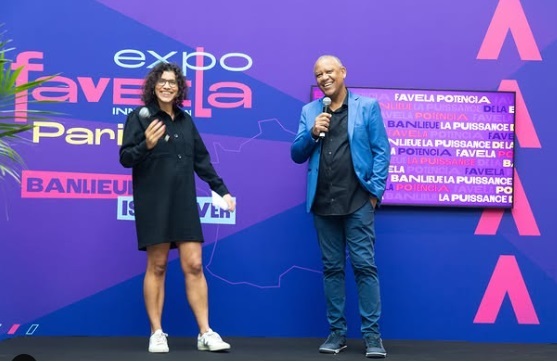Celso Athaíde is a living example of the fact that where you come from doesn't define how far you can go. Born in a favela in Baixada Fluminense, Brazil, he faced extreme difficulties in his childhood and adolescence, having spent time in public shelters and even living on the streets until he was 16. It was precisely this challenging context that ended up being his greatest tool, driving him to create social businesses capable of generating human transformation and positive impact.
Read also in: CUFA: A Global Ecosystem for Social Transformation - Balai

The defining characteristic of his success was his self-taught ability. He became the author and co-author of best-selling books with a critical and in-depth look at life in the Brazilian favelas.
In 1999, as a social activist, Celso took a decisive step by founding the Central Única das Favelas (CUFA) with other partners in the Cidade de Deus community in Rio de Janeiro. Since then, CUFA has become the largest non-governmental organisation focused on Brazil's favelas, distinguishing itself by cultural intervention through Hip Hop, Street Basketball, audiovisual productions, graffiti, breakdancing, among other social initiatives. Its main objective has always been to give a voice and create opportunities for marginalised communities, and it has established itself as one of Brazil's most influential organisations in the field of social entrepreneurship and community development.
Emblematic projects such as the Favelas Cup, one of the largest football tournaments between communities in the world, and the Anu Prize, which recognises transformative initiatives, have positioned CUFA at the centre of debates on public policy and social development in Brazil. During the COVID-19 pandemic, CUFA also played a crucial role in humanitarian assistance, distributing millions of food baskets and providing aid to vulnerable families.
Thanks to its success in Brazil, CUFA has expanded globally and its model is being replicated in several countries. The expansion began in Latin America, in countries like Argentina and Colombia, where the realities of peripheral communities are similar to those in Brazil. This was followed by the United States and various European countries and the African continent.
The central aim of this expansion is to create collaborative networks that enable favelas and communities at risk around the world to share knowledge, opportunities and empowerment strategies. The number of international offices now exceeds 60 countries and will continue to expand rapidly from 2024.
CUFA Global diversifies its activities through investments especially in the areas of Entrepreneurship and Creative Economy, Education and Professional Training, Sport, Culture, Technology and Innovation.
In Cape Verde, we have been representing CUFA since October 2024 with the commitment to adapt the knowledge and experience accumulated by the organisation and its international representations to the local reality. CUFA is a concrete example of how community mobilisation combined with social entrepreneurship generates real and sustainable impact.
Our goal as CUFA Cape Verde is to foster a strong sense of cultural identification with the mission of social entrepreneurship, where creating a positive impact is the order of the day. We are therefore committed to building bridges between communities most at risk of social exclusion and concrete opportunities for transformation, by promoting Cape Verdean cultural identity and social inclusion.


